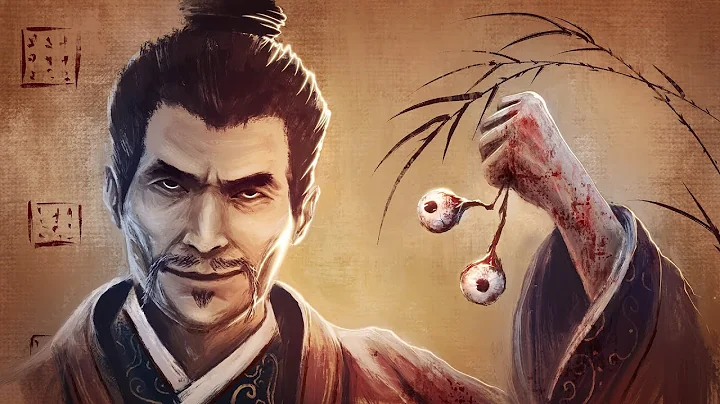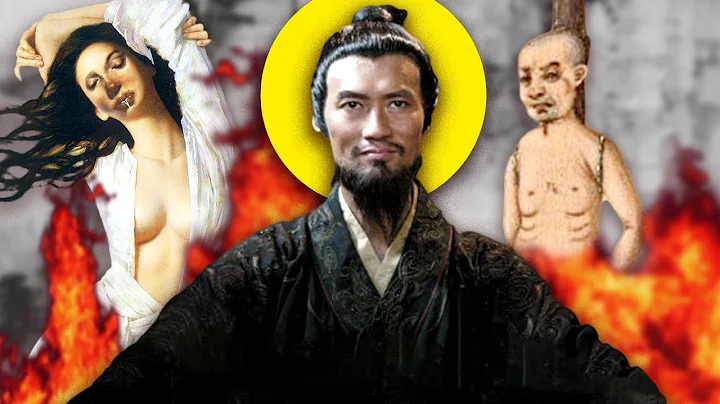There have been too many mutinies in China's thousands of years of history. The Xuanwu Gate is the most famous in Chinese history. The initiator Qin Wang Li Shimin killed his elder brother Li Jiancheng and his fourth brother Li Yuanji. , And forced his father Li Yuan, the emperor of the Great Tang Dynasty, Taiwu Emperor, to abdicate and let the virtuous, inherit the throne himself and become the emperor of China's eternal Mingjun Datang Taizongwen.
Mutiny or court coup has occurred in the history of many countries in the world, but it is the history of Vietnam and North Korea that has been most affected by Chinese history and has the highest similarity. The historical figure to be introduced now, he launched a mutiny with a similarity of more than 90% to the Xuanwumen Transfiguration. The result of the mutiny was that he killed his brothers and forced his father to give way, and became the eternal Emperor.
He is Li Fangyuan, the third king of the Joseon Dynasty, Taejong, and later generations are known as "Taejong of Joseon".

Portrait of Li Fangyuan of King Taejong of North Korea
Li Fangyuan was born in 1367, and was the fifth son of King Taejo Lee Sung-gye, the first king of the Joseon Dynasty. His biological mother was Lee Sung-gye’s first wife and god Queen Yi Han. When Li Fangyuan was born, Li Chenggui was already a well-known figure in the Goryeo dynasty, and he was highly relied on by the King of Goryeo. He grew up under the influence of his father and developed a wise and courageous character. His four brothers are much inferior to him.
In 1388 AD, the King of Goryeo wanted to take advantage of the battle between Daemyung and North Won to invade the border between China and North Korea, so he sent Li Chenggui to lead his army. When Li Chenggui led his army to the border of Weihua Island, he found that there were difficulties in supply and marching, and he was in awe of Daming, who expelled the Mongols from the Central Plains and restored the Han people, and did not dare to invade rashly.
So Li Sung-gye played the King of Goryeo, stating the interest of sending troops to occupy the border between China and North Korea, and requested the cancellation of the military dispatch plan, but the King of Goryeo refused, and the King of Goryeo warned Lee Sung-gye to withdraw if he did not send troops immediately All his positions and powers.

Lee Fang-won of King Taejong of Korea in Korean film and television works
In a dilemma, with the support and encouragement from his abdomen, Lee Sung-gye decided to replace the mediocre and incompetent King of Goryeo. The army counterattacked the capital of Goryeo, which was known as "Waihua Island Returning Army" in history. Before launching the attack, Li Chenggui was worried that King Goryeo would be disadvantageous to his family. He notified the fifth son Li Fangyuan in advance and asked Li Fangyuan to protect his mother and several siblings from fleeing. Li Fangyuan accomplished the task brilliantly.
After Weihuadao returned to the army, Lee Sung-gye mastered the military power of the Goryeo Dynasty, but there were still many Goryeo ministers opposed to him, and even the Goryeo ministers and the Goryeo kings eliminated Lee Sung-gye. In order to clear the obstacles for his father to ascend to the throne, Li Fangyuan used quite brutal means to kill all the ministers who opposed his father one by one, and the King of Goryeo became a puppet of Li Chenggui.
In 1392, Lee Sung-gye abolished the King of Goryeo and took the throne to sit by himself. He named the country as North Korea and the capital of Seoul. The last dynasty in the history of North Korea was established. So far, the Goryeo dynasty of Kuojo for more than 400 years was replaced by the Joseon dynasty of Kuojo for more than 500 years. Li Fangyuan was the first founder of the Joseon Dynasty by his father, Lee Sung-gye.

Lee Sung-gye and Lee Fang-won in the Korean film and television works
After the establishment of the Joseon Dynasty, Lee Fang-won was once ordered to pay tribute to the suzerain state of Daming. When Li Fangyuan was passing by Beijing, he met and talked privately with Yan Wang Zhu Di. The two of them were very able to talk, as if they had met each other late, but no one knew what they had talked about, and no one knew that both of them launched troops later. Is it a coincidence or an agreement.
Although Li Fangyuan played an important role in the establishment of the Joseon Dynasty, Li Sung-gye had no intention of registering him as the eldest son. Instead, he appointed Li Fang-suk, the eighth son born to the second wife of God Queen Kang, as the eldest son. The reason why Li Chenggui was named Li Fangshuo is because after the death of the first wife, Queen Shenyi, Han, he loved the young and beautiful second wife, Queen Kang, and then he also loved her son Li Fangshuo.
Li Chenggui's appointment of a young son because he spoiled his wife undoubtedly violated the taboo of the imperial family's heir. His decision made Li Fangyuan's dissatisfaction to the extreme. Li Fangyuan thinksThe father became quite dull and unsuitable to be a king, so he decided to replace him.

Korean Taizong Li Fangyuan in Korean film and television works
In 1398 and 1400, Li Fangyuan launched two Korean version of the Xuanwu Gate, which is the first in history. The second prince's rebellion. In the first prince's rebellion, Li Fangyuan killed his elder son Li Fangshuo and others, abolished his father Li Chenggui, and supported his second brother Li Fangguo, Dingzong of Korea, and became the actual ruler himself. In the second prince's rebellion, Li Fangyuan killed his fourth brother Li Fangqian who wanted to snatch the throne with him, and abolished his second brother Joseon Jeongjong, and officially took the throne.
What makes people feel incredible is that when Li Fangyuan was launching a mutiny, Yan Wang Zhu Di was also carrying out the Jing Nan change, and it had to be reminiscent of whether the two had agreed to usurp the throne in a private meeting.
Although Li Fangyuan launched the Chosun version of Xuanwumen to grab the throne, he is indeed a prominent king of Wenji martial arts, and the Joseon dynasty is developing towards prosperity under his rule. He is like the Korean version of Li Semin, or Said to be like the Korean version of Zhu Di, it is the Korean version of Emperor Mingjun, and also one of the most prominent kings in Korean history of Wenzhi martial arts.
In 1418, Li Fangyuan was passed down as the third son of Sejong Lee Seong of Joseon, and assisted his son as the King of the Supreme. After Li Fangyuan's death, Li Xi lived up to his expectations and finally developed the Joseon Dynasty to its peak. It can be described as "a tiger father without a dog".

North Korean Taejong Lee Fangyuan in Korean film and television works
![[Full Movie] Rise of Tang Dynasty 1 | Chinese History & War Action film HD - DayDayNews](https://i.ytimg.com/vi/_C0q_Lek3jA/hq720.jpg?sqp=-oaymwEcCNAFEJQDSFXyq4qpAw4IARUAAIhCGAFwAcABBg==&rs=AOn4CLA9rePuhzXKdGcDwUFZ1RNN3GynaQ)
![[Full Movie] Rise of Tang Dynasty 1 | Chinese History & War Action film HD - DayDayNews](https://cdn-dd.daydaynews.cc/img/play.svg)






![Empress Ki, the most hated woman in Korean history? (기황후) [Korean History] - DayDayNews](https://i.ytimg.com/vi/mDYJIhWLIEg/hq720.jpg?sqp=-oaymwEcCNAFEJQDSFXyq4qpAw4IARUAAIhCGAFwAcABBg==&rs=AOn4CLALKUoDtcZ_xA9227uR4Ekk4A4iwQ)












